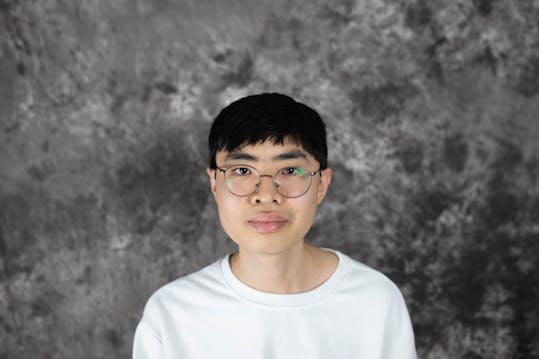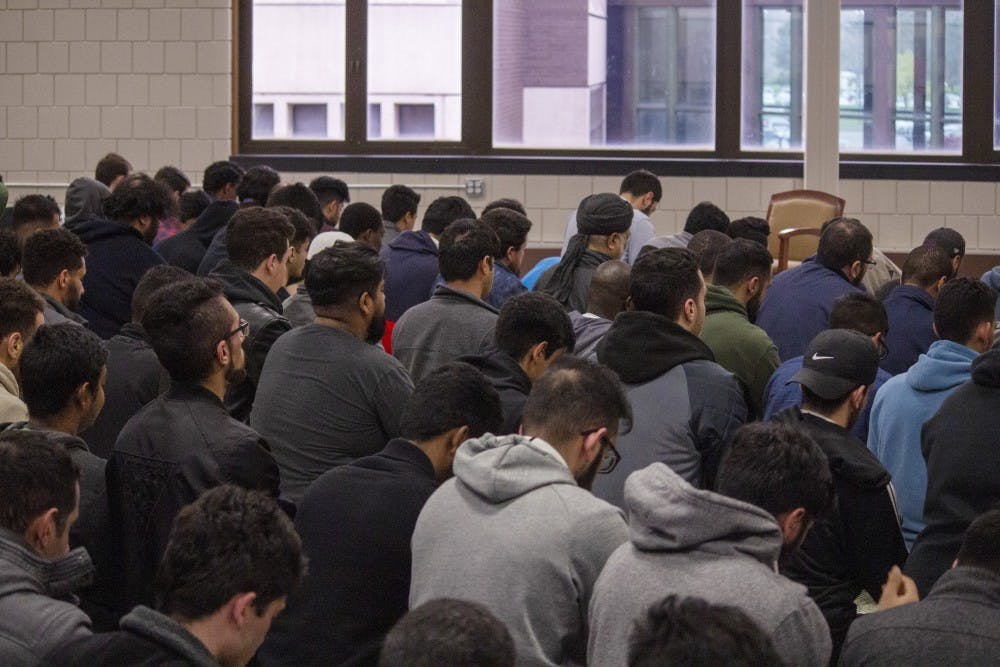Muslim students at UB will join millions around the world in observing the first night of Ramadan Monday.
Each year, the start of the holy month of Ramadan is determined by the sighting of the crescent moon. For 29 to 30 days, observers abstain from eating and drinking from sunrise to sunset, except in certain circumstances. Observers also refrain from engaging in forbidden activities, such as smoking and sexual activity.
While Ramadan is a month of fasting, it’s also a time to reflect and get closer to Allah. During the holy month, Khansa Khanam, a freshman computer science major, reflects on the value of gratitude. She also dedicates her time to praying and reading the Quran.
“It reminds you of how grateful you are supposed to be to all the things you have in life, like food,” Khanam said. “When you abstain from drinking water, entertainment or listening to music, you just connect more with the Almighty… We read a lot of the Quran, and we understand and live the way of the Quran.”
In the month-long time of fasting, observers wake up before dawn for suhoor, a meal eaten before the day’s fast. Observers then fast until after sunset, when they break their fast with a meal called iftar.
Tarannun Begum, a sophomore information technology and management major, has heard many misconceptions from people when it comes to fasting.
“[One misconception is] that we don’t eat at all,” Begum said. “We do eat, but [not until] after sunset. We don’t go the full 30 days without food — that would be impossible.”
Ramadan is also a time of charity, where observers support people in need. While observing Ramadan this year, Sumaia Hoque, a sophomore information technology and management major, is thinking of those less fortunate — especially those in Gaza. The United Nations warned at the end of February that famine was “imminent” in Gaza, and the Associated Press reported that dozens of Palestinians, including many children, have starved to death in Gaza as a result of Israel’s offensive.
“[Observing Ramadan] is a way for us to understand how people in Palestine or the less fortunate are feeling,” Hoque said. “Since we’re fasting, we’re not having our proper meals everyday. [Fasting shows us] how it would be to feel in their shoes.”
For some students, this year will be their first time observing Ramadan without their family. With Ramadan approaching, Khanam is preparing to observe the holy month on a whole new continent without her family in India.
“I’m used to having my iftar and suhoor with my family,” Khanam said. “Leaving my family behind and not doing stuff with them is a little unsettling.”
To bring the Muslim community at UB together, the Muslim Student Association (MSA) is holding iftars on weekdays. As a new transfer student, Hoque plans on attending several of MSA’s iftars to connect with students.
With the holy month taking place during one of the busiest parts of the semester, students are trying to find ways to navigate through their strenuous schedules. For Umm Tahanan, a sophomore neuroscience major, partaking in iftar is going to be more challenging this year.
“I have an exam at 6:30 to 7:30 [p.m.] and we have to break our fast [after] the sun goes down, so I’ll be in the middle of an exam and I can’t [break fast],” Tahanan said. “I’ll just drink water and that’s it, but I don’t have that time for myself to break my fast.”
Some students believe the university is not doing enough to support and accommodate residential students who are observing Ramadan. Elyh Fennell, a junior mechanical engineering major and MSA’s Jummah prayer setup coordinator, believes the university should accommodate students with meal plans by extending dining hall operation hours.
“I know some students don’t really have the time for iftar because of classes or other things,” Fennell said. “The food centers could stay open a little longer depending on when students get out of class.”
During Ramadan, Campus Dining & Shops (CDS) plans to accommodate students for iftar by providing to-go options at Crossroads Culinary Center (C3), Governors Dining Center and Goodyear Dining Center.
“Over the past several years during the observance of Ramadan, Campus Dining has accommodated residential Muslim students by allowing a to-go option from our dining centers so students could eat after sundown,” Raymond Kohl, the director of marketing and communications for CDS, told The Spectrum in an email.
Kohl also noted that late night dining services will be available for students during iftar, which include Hubies in the Ellicott Food Court until 10 p.m. and Main Street Market in Goodyear Hall until 11:30 p.m.
For suhoor, CDS is “working on an option” for students to purchase high-protein, halal “grab-and-go bento boxes” the night prior to suhoor at C3, the Ellicott Food Court, Governors Dining Center, The Cellar, Goodyear Dining Center, Harriman Café, Corner Café, Capen Café and One World Café, according to Kohl.
Jason Tsoi is an assistant features editor and can be reached at jason.tsoi@ubspectrum.com

Jason Tsoi is an assistant features editor at The Spectrum. He is an English major with a certificate in journalism. During his free time, he can be found listening to music and watching films.





